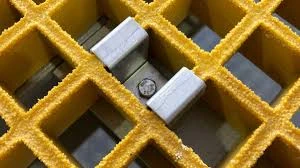
-
 Afrikaans
Afrikaans -
 Albanian
Albanian -
 Amharic
Amharic -
 Arabic
Arabic -
 Armenian
Armenian -
 Azerbaijani
Azerbaijani -
 Basque
Basque -
 Belarusian
Belarusian -
 Bengali
Bengali -
 Bosnian
Bosnian -
 Bulgarian
Bulgarian -
 Catalan
Catalan -
 Cebuano
Cebuano -
 China
China -
 China (Taiwan)
China (Taiwan) -
 Corsican
Corsican -
 Croatian
Croatian -
 Czech
Czech -
 Danish
Danish -
 Dutch
Dutch -
 English
English -
 Esperanto
Esperanto -
 Estonian
Estonian -
 Finnish
Finnish -
 French
French -
 Frisian
Frisian -
 Galician
Galician -
 Georgian
Georgian -
 German
German -
 Greek
Greek -
 Gujarati
Gujarati -
 Haitian Creole
Haitian Creole -
 hausa
hausa -
 hawaiian
hawaiian -
 Hebrew
Hebrew -
 Hindi
Hindi -
 Miao
Miao -
 Hungarian
Hungarian -
 Icelandic
Icelandic -
 igbo
igbo -
 Indonesian
Indonesian -
 irish
irish -
 Italian
Italian -
 Japanese
Japanese -
 Javanese
Javanese -
 Kannada
Kannada -
 kazakh
kazakh -
 Khmer
Khmer -
 Rwandese
Rwandese -
 Korean
Korean -
 Kurdish
Kurdish -
 Kyrgyz
Kyrgyz -
 Lao
Lao -
 Latin
Latin -
 Latvian
Latvian -
 Lithuanian
Lithuanian -
 Luxembourgish
Luxembourgish -
 Macedonian
Macedonian -
 Malgashi
Malgashi -
 Malay
Malay -
 Malayalam
Malayalam -
 Maltese
Maltese -
 Maori
Maori -
 Marathi
Marathi -
 Mongolian
Mongolian -
 Myanmar
Myanmar -
 Nepali
Nepali -
 Norwegian
Norwegian -
 Norwegian
Norwegian -
 Occitan
Occitan -
 Pashto
Pashto -
 Persian
Persian -
 Polish
Polish -
 Portuguese
Portuguese -
 Punjabi
Punjabi -
 Romanian
Romanian -
 Russian
Russian -
 Samoan
Samoan -
 Scottish Gaelic
Scottish Gaelic -
 Serbian
Serbian -
 Sesotho
Sesotho -
 Shona
Shona -
 Sindhi
Sindhi -
 Sinhala
Sinhala -
 Slovak
Slovak -
 Slovenian
Slovenian -
 Somali
Somali -
 Spanish
Spanish -
 Sundanese
Sundanese -
 Swahili
Swahili -
 Swedish
Swedish -
 Tagalog
Tagalog -
 Tajik
Tajik -
 Tamil
Tamil -
 Tatar
Tatar -
 Telugu
Telugu -
 Thai
Thai -
 Turkish
Turkish -
 Turkmen
Turkmen -
 Ukrainian
Ukrainian -
 Urdu
Urdu -
 Uighur
Uighur -
 Uzbek
Uzbek -
 Vietnamese
Vietnamese -
 Welsh
Welsh -
 Bantu
Bantu -
 Yiddish
Yiddish -
 Yoruba
Yoruba -
 Zulu
Zulu
Lightweight FRP Walkway Grating Corrosion-Resistant & High Load Capacity
- Introduction to FRP Solutions in Industrial Infrastructure
- Technical Advantages of Fiberglass Reinforced Polymer
- Performance Comparison: FRP vs Traditional Materials
- Custom Engineering for Site-Specific Requirements
- Case Study: Chemical Plant Walkway Retrofit
- Maintenance & Cost Efficiency Analysis
- Future-Proofing Infrastructure with FRP Walkways

(frp walkway)
Revolutionizing Access Systems with FRP Walkway Solutions
Modern industrial facilities increasingly adopt FRP walkway systems to address structural challenges in corrosive environments. These composite solutions combine polymer resins with glass fibers, delivering 84% better corrosion resistance than carbon steel according to ASTM B117 salt spray tests. The modular design enables rapid installation, reducing project timelines by 30-45% compared to welded metal alternatives.
Superior Material Properties
Fiberglass walkway grating exhibits unique characteristics:
- • 1/4 the weight of steel with equal load capacity (1,200 lbs/ft²)
- • Dielectric strength exceeding 3.5 kV/mm
- • Operational range: -60°F to 180°F (-51°C to 82°C)
Competitive Product Analysis
| Feature | FRP Trough Cover | Galvanized Steel | Aluminum |
|---|---|---|---|
| Corrosion Resistance | Class A | Class C | Class B |
| Lifecycle Cost (20 yrs) | $18.50/sq.ft | $42.75/sq.ft | $37.20/sq.ft |
| Installation Time | 0.75 hrs/panel | 2.25 hrs/panel | 1.5 hrs/panel |
Adaptive Design Capabilities
Manufacturers offer 12 standardized profiles and custom mold services for specialized applications:
- 1. Anti-slip diamond surface (COF ≥0.6 wet/dry)
- 2. Chemical-resistant VE resin formulations
- 3. UL94 V-0 fire-rated configurations
Refinery Catwalk Upgrade Project
A Gulf Coast petroleum facility replaced 8,000 sq.ft of corroded steel platforms with FRP walkway grating:
"The fiberglass solution eliminated annual $147K maintenance costs while meeting API 650 slip resistance standards. Installation was completed during a 72-hour shutdown window."Post-installation inspections show 0% material degradation after 42 months of service.
Lifecycle Value Proposition
FRP trough covers demonstrate measurable ROI:
- • 90% reduction in surface prep labor
- • 2.8:1 load-to-weight ratio advantage
- • 0.07% annual depreciation vs 1.2% for metals
FRP Walkway Systems: The Sustainable Choice
Advanced composites now account for 19% of new industrial walkway installations globally. With 35-year service life certifications from ISO 1461 and NACE SP0492, FRP solutions prevent 18 tons of steel replacement waste per 1,000 sq.ft installed. The material’s 87% recyclability rate positions it as the preferred option for LEED-certified projects.

(frp walkway)
FAQS on frp walkway
Q: What are the key advantages of using FRP walkways?
A: FRP walkways are lightweight, corrosion-resistant, and non-conductive, making them ideal for harsh environments like chemical plants or marine areas. They also require minimal maintenance compared to traditional materials like steel.
Q: How does fiberglass walkway grating handle heavy loads?
A: Fiberglass walkway grating is engineered with high-strength resins and reinforcement, providing excellent load-bearing capacity. It can support industrial equipment and foot traffic while resisting deformation over time.
Q: Are FRP trough covers customizable for different applications?
A: Yes, FRP trough covers can be tailored in size, shape, and surface texture (e.g., anti-slip) to fit specific needs. They are commonly used in water treatment facilities or drainage systems for durability and safety.
Q: What maintenance is required for fiberglass walkway grating?
A: Fiberglass grating requires only periodic cleaning with water and mild detergent. It resists rust, rot, and UV degradation, eliminating the need for painting or frequent repairs.
Q: Why choose FRP walkways over metal alternatives in corrosive environments?
A: Unlike metal, FRP walkways do not corrode when exposed to chemicals, moisture, or saltwater. This extends their lifespan and reduces downtime and replacement costs in corrosive settings.
Latest news
-
Other Products: Explore Our Diverse RangeNewsAug.07,2025
-
High-Efficiency Fans, Dampers & Demisters | Custom SolutionsNewsAug.06,2025
-
Precision Mandrels and Molds - Engineered SolutionsNewsAug.04,2025
-
Dual Laminate Products | Superior Corrosion ResistanceNewsAug.03,2025
-
Large Size Field Tanks with AI-Powered EfficiencyNewsAug.01,2025
-
Steps: Simple Solutions for Every ProcessNewsJul.30,2025









